"In The Book of Joy, The Dalai Lama and Archbishop Desmond Tutu get real — really real — about their emotions, their constant practices, and what it means to be human. For those with anxiety or imposter worries, they share their personal reflections having to also 'fake it till they made it' with their separate faiths as their guiding truth."
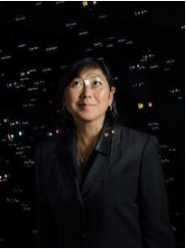
We delve into books for so many different reasons: guidance, knowledge, curiosity and oftentimes to lose ourselves in a captivating tale that can take us to the farthest stretches of our imagination. Esalen News invites our faculty to share what’s on their nightstand and why.
When Esalen faculty Janis Nakano Spivack founded Brite Catalyst, her vision was clear: She wanted to create a company dedicated to teaching everyone to greet change and transition with more success. Janis shares her latest book picks with Esalen News.
Esalen News: What book have you loved experiencing recently?
Janis Nakano Spivack: The book I savored and returned to several times was The Book of Joy by the Dalai Lama and Archbishop Desmond Tutu with author Douglas Abrams. I’m going to throw in a second, because I think it might have been reading these two in parallel that added to my enjoyment. The book I read in parallel was The Republic of Pirates by Colin Woodard.
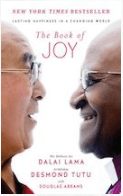
What did you find most inspiring?
For the first, Douglas Abrams has turned an intimate coming together of longtime friends, into a delightful book filled with wisdom and inspiration. The Dalai Lama and Archbishop Desmond Tutu get real — really real — about their emotions, their constant practices and what it means to be human. For those with anxiety or imposter worries, they share their personal reflections having to also “fake it till they made it” with their separate faiths as their guiding truth.
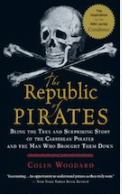
What are several other things that really stood out about each book?
Bouncing between the collective holiness of The Dalai Lama and Archbishop Tutu and 'pirates,' I learned that in advertising outside of the norms of corporate correctness, it always felt slightly pirate-like — seeking independence but also gathering to compete and carouse together. For several years I’ve observed a new group of rebels emerging — a desire to add “collaboration” into the compete and carouse. The first book is a lovely afternoon read and will stay with you. The second is a bit of historical fun with some tips on how to govern a rowdy bunch of rebels.
What book are you really looking forward to reading?
I’ve had Sapiens: A Brief History of Humankind waiting for me for several months. I am in awe of author Yuval Noah Harari’s effort to capture the fullest history of human cognition, connection and context. When thinking about our individual impact as a human, we believe it’s minimal. But when we understand our collective impact and then think about the power of advertisers to amplify the collective and to hasten or slow an action, it gives you pause.
Is there a book you wish somebody would write, which you would read immediately?
I’m interested in a book about choice, change and impact for people in a hurry, one that is explained in simple and immediately understood terms with easy-to-do actions. Today, we mostly accept and use all the communication tools available to us to get people to change. As a result, the timeline impact of that change also boomerangs back to us faster.
What used to take several million years might now take less than a decade to end a species, perhaps, or to end an industry, to end a job. Our fear of change often overrides our acceptance of information and increases our denial. Neil deGrasse Tyson talks about our smallness in the world. I’d love for someone to write about the bigness of the individual and describe ways that we might feel less small and overwhelmed, and braver and more confident in our impact to do less — unintended destruction — and better for each other.
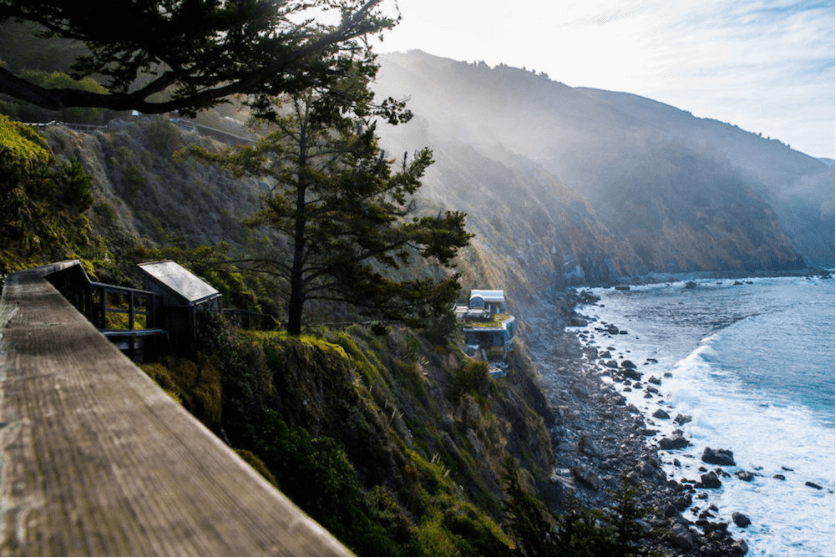
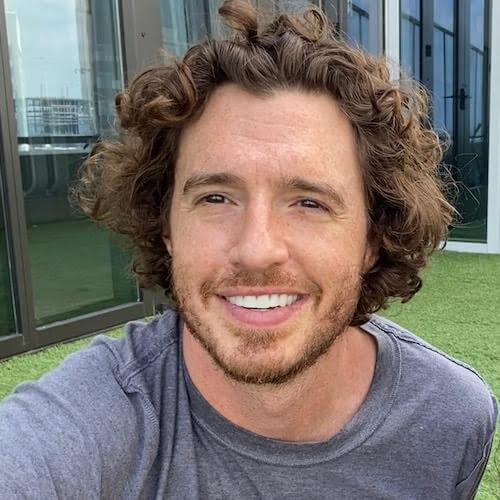
“Remembering to be as self compassionate as I can and praying to the divine that we're all a part of.”
–Aaron
“Prayer, reading, meditation, walking.”
–Karen
“Erratically — which is an ongoing stream of practice to find peace.”
–Charles
“Try on a daily basis to be kind to myself and to realize that making mistakes is a part of the human condition. Learning from our mistakes is a journey. But it starts with compassion and caring. First for oneself.”
–Steve
“Physically: aerobic exercise, volleyball, ice hockey, cycling, sailing. Emotionally: unfortunately I have to work to ‘not care’ about people or situations which may end painfully. Along the lines of ‘attachment is the source of suffering’, so best to avoid it or limit its scope. Sad though because it could also be the source of great joy. Is it worth the risk?“
–Rainer
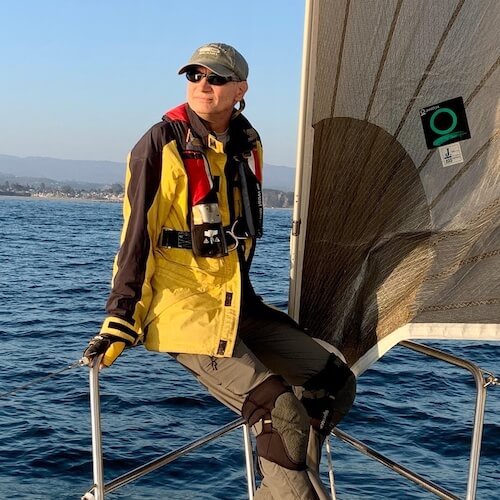

“It's time for my heart to be nurtured on one level yet contained on another. To go easy on me and to allow my feelings to be validated, not judged harshly. On the other hand, to let the heart rule with equanimity and not lead the mind and body around like a master.”
–Suzanne
“I spend time thinking of everything I am grateful for, and I try to develop my ability to express compassion for myself and others without reservation. I take time to do the things I need to do to keep myself healthy and happy. This includes taking experiential workshops, fostering relationships, and participating within groups which have a similar interest to become a more compassionate and fulfilled being.“
–Peter
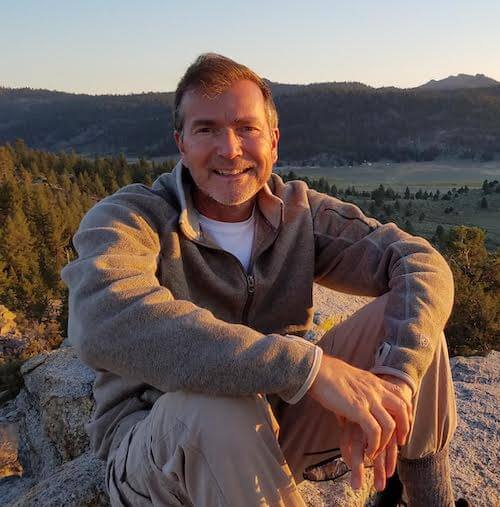
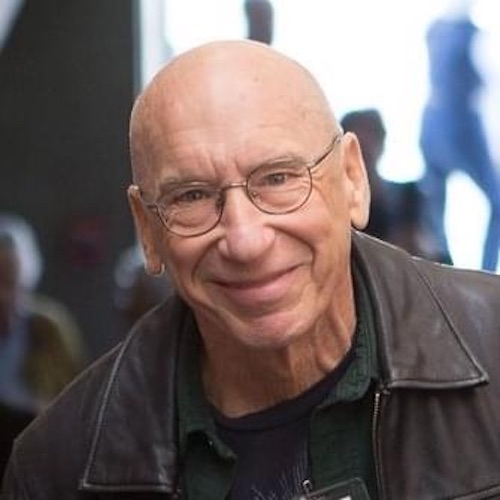
“Self-forgiveness for my own judgments. And oh yeah, coming to Esalen.”
–David B.
“Hmm, this is a tough one! I guess I take care of my heart through fostering relationships with people I feel connected to. Spending quality time with them (whether we're on the phone, through messages/letters, on Zoom, or in-person). Being there for them, listening to them, sharing what's going on with me, my struggles and my successes... like we do in the Esalen weekly Friends of Esalen Zoom sessions!”
–Lori

“I remind myself in many ways of the fact that " Love is all there is!" LOVE is the prize and this one precious life is the stage we get to learn our lessons. I get out into nature, hike, camp, river kayak, fly fish, garden, I create, I dance (not enough!), and I remain grateful for each day, each breath, each moment. Being in the moment, awake, and remembering the gift of life and my feeling of gratitude for all of creation.”
–Steven
“My physical heart by limiting stress and eating a heart-healthy diet. My emotional heart by staying in love with the world and by knowing that all disappointment and loss will pass.“
–David Z.
Today, September 29, is World Heart Day. Strike up a conversation with your own heart and as you feel comfortable, encourage others to do the same. As part of our own transformations and self-care, we sometimes ask for others to illuminate and enliven our hearts or speak our love language.
What if we could do this for ourselves too, even if just for today… or to start a heart practice, forever?
"In The Book of Joy, The Dalai Lama and Archbishop Desmond Tutu get real — really real — about their emotions, their constant practices, and what it means to be human. For those with anxiety or imposter worries, they share their personal reflections having to also 'fake it till they made it' with their separate faiths as their guiding truth."

We delve into books for so many different reasons: guidance, knowledge, curiosity and oftentimes to lose ourselves in a captivating tale that can take us to the farthest stretches of our imagination. Esalen News invites our faculty to share what’s on their nightstand and why.
When Esalen faculty Janis Nakano Spivack founded Brite Catalyst, her vision was clear: She wanted to create a company dedicated to teaching everyone to greet change and transition with more success. Janis shares her latest book picks with Esalen News.
Esalen News: What book have you loved experiencing recently?
Janis Nakano Spivack: The book I savored and returned to several times was The Book of Joy by the Dalai Lama and Archbishop Desmond Tutu with author Douglas Abrams. I’m going to throw in a second, because I think it might have been reading these two in parallel that added to my enjoyment. The book I read in parallel was The Republic of Pirates by Colin Woodard.

What did you find most inspiring?
For the first, Douglas Abrams has turned an intimate coming together of longtime friends, into a delightful book filled with wisdom and inspiration. The Dalai Lama and Archbishop Desmond Tutu get real — really real — about their emotions, their constant practices and what it means to be human. For those with anxiety or imposter worries, they share their personal reflections having to also “fake it till they made it” with their separate faiths as their guiding truth.

What are several other things that really stood out about each book?
Bouncing between the collective holiness of The Dalai Lama and Archbishop Tutu and 'pirates,' I learned that in advertising outside of the norms of corporate correctness, it always felt slightly pirate-like — seeking independence but also gathering to compete and carouse together. For several years I’ve observed a new group of rebels emerging — a desire to add “collaboration” into the compete and carouse. The first book is a lovely afternoon read and will stay with you. The second is a bit of historical fun with some tips on how to govern a rowdy bunch of rebels.
What book are you really looking forward to reading?
I’ve had Sapiens: A Brief History of Humankind waiting for me for several months. I am in awe of author Yuval Noah Harari’s effort to capture the fullest history of human cognition, connection and context. When thinking about our individual impact as a human, we believe it’s minimal. But when we understand our collective impact and then think about the power of advertisers to amplify the collective and to hasten or slow an action, it gives you pause.
Is there a book you wish somebody would write, which you would read immediately?
I’m interested in a book about choice, change and impact for people in a hurry, one that is explained in simple and immediately understood terms with easy-to-do actions. Today, we mostly accept and use all the communication tools available to us to get people to change. As a result, the timeline impact of that change also boomerangs back to us faster.
What used to take several million years might now take less than a decade to end a species, perhaps, or to end an industry, to end a job. Our fear of change often overrides our acceptance of information and increases our denial. Neil deGrasse Tyson talks about our smallness in the world. I’d love for someone to write about the bigness of the individual and describe ways that we might feel less small and overwhelmed, and braver and more confident in our impact to do less — unintended destruction — and better for each other.


“Remembering to be as self compassionate as I can and praying to the divine that we're all a part of.”
–Aaron
“Prayer, reading, meditation, walking.”
–Karen
“Erratically — which is an ongoing stream of practice to find peace.”
–Charles
“Try on a daily basis to be kind to myself and to realize that making mistakes is a part of the human condition. Learning from our mistakes is a journey. But it starts with compassion and caring. First for oneself.”
–Steve
“Physically: aerobic exercise, volleyball, ice hockey, cycling, sailing. Emotionally: unfortunately I have to work to ‘not care’ about people or situations which may end painfully. Along the lines of ‘attachment is the source of suffering’, so best to avoid it or limit its scope. Sad though because it could also be the source of great joy. Is it worth the risk?“
–Rainer


“It's time for my heart to be nurtured on one level yet contained on another. To go easy on me and to allow my feelings to be validated, not judged harshly. On the other hand, to let the heart rule with equanimity and not lead the mind and body around like a master.”
–Suzanne
“I spend time thinking of everything I am grateful for, and I try to develop my ability to express compassion for myself and others without reservation. I take time to do the things I need to do to keep myself healthy and happy. This includes taking experiential workshops, fostering relationships, and participating within groups which have a similar interest to become a more compassionate and fulfilled being.“
–Peter


“Self-forgiveness for my own judgments. And oh yeah, coming to Esalen.”
–David B.
“Hmm, this is a tough one! I guess I take care of my heart through fostering relationships with people I feel connected to. Spending quality time with them (whether we're on the phone, through messages/letters, on Zoom, or in-person). Being there for them, listening to them, sharing what's going on with me, my struggles and my successes... like we do in the Esalen weekly Friends of Esalen Zoom sessions!”
–Lori

“I remind myself in many ways of the fact that " Love is all there is!" LOVE is the prize and this one precious life is the stage we get to learn our lessons. I get out into nature, hike, camp, river kayak, fly fish, garden, I create, I dance (not enough!), and I remain grateful for each day, each breath, each moment. Being in the moment, awake, and remembering the gift of life and my feeling of gratitude for all of creation.”
–Steven
“My physical heart by limiting stress and eating a heart-healthy diet. My emotional heart by staying in love with the world and by knowing that all disappointment and loss will pass.“
–David Z.
Today, September 29, is World Heart Day. Strike up a conversation with your own heart and as you feel comfortable, encourage others to do the same. As part of our own transformations and self-care, we sometimes ask for others to illuminate and enliven our hearts or speak our love language.
What if we could do this for ourselves too, even if just for today… or to start a heart practice, forever?
"In The Book of Joy, The Dalai Lama and Archbishop Desmond Tutu get real — really real — about their emotions, their constant practices, and what it means to be human. For those with anxiety or imposter worries, they share their personal reflections having to also 'fake it till they made it' with their separate faiths as their guiding truth."

We delve into books for so many different reasons: guidance, knowledge, curiosity and oftentimes to lose ourselves in a captivating tale that can take us to the farthest stretches of our imagination. Esalen News invites our faculty to share what’s on their nightstand and why.
When Esalen faculty Janis Nakano Spivack founded Brite Catalyst, her vision was clear: She wanted to create a company dedicated to teaching everyone to greet change and transition with more success. Janis shares her latest book picks with Esalen News.
Esalen News: What book have you loved experiencing recently?
Janis Nakano Spivack: The book I savored and returned to several times was The Book of Joy by the Dalai Lama and Archbishop Desmond Tutu with author Douglas Abrams. I’m going to throw in a second, because I think it might have been reading these two in parallel that added to my enjoyment. The book I read in parallel was The Republic of Pirates by Colin Woodard.

What did you find most inspiring?
For the first, Douglas Abrams has turned an intimate coming together of longtime friends, into a delightful book filled with wisdom and inspiration. The Dalai Lama and Archbishop Desmond Tutu get real — really real — about their emotions, their constant practices and what it means to be human. For those with anxiety or imposter worries, they share their personal reflections having to also “fake it till they made it” with their separate faiths as their guiding truth.

What are several other things that really stood out about each book?
Bouncing between the collective holiness of The Dalai Lama and Archbishop Tutu and 'pirates,' I learned that in advertising outside of the norms of corporate correctness, it always felt slightly pirate-like — seeking independence but also gathering to compete and carouse together. For several years I’ve observed a new group of rebels emerging — a desire to add “collaboration” into the compete and carouse. The first book is a lovely afternoon read and will stay with you. The second is a bit of historical fun with some tips on how to govern a rowdy bunch of rebels.
What book are you really looking forward to reading?
I’ve had Sapiens: A Brief History of Humankind waiting for me for several months. I am in awe of author Yuval Noah Harari’s effort to capture the fullest history of human cognition, connection and context. When thinking about our individual impact as a human, we believe it’s minimal. But when we understand our collective impact and then think about the power of advertisers to amplify the collective and to hasten or slow an action, it gives you pause.
Is there a book you wish somebody would write, which you would read immediately?
I’m interested in a book about choice, change and impact for people in a hurry, one that is explained in simple and immediately understood terms with easy-to-do actions. Today, we mostly accept and use all the communication tools available to us to get people to change. As a result, the timeline impact of that change also boomerangs back to us faster.
What used to take several million years might now take less than a decade to end a species, perhaps, or to end an industry, to end a job. Our fear of change often overrides our acceptance of information and increases our denial. Neil deGrasse Tyson talks about our smallness in the world. I’d love for someone to write about the bigness of the individual and describe ways that we might feel less small and overwhelmed, and braver and more confident in our impact to do less — unintended destruction — and better for each other.


“Remembering to be as self compassionate as I can and praying to the divine that we're all a part of.”
–Aaron
“Prayer, reading, meditation, walking.”
–Karen
“Erratically — which is an ongoing stream of practice to find peace.”
–Charles
“Try on a daily basis to be kind to myself and to realize that making mistakes is a part of the human condition. Learning from our mistakes is a journey. But it starts with compassion and caring. First for oneself.”
–Steve
“Physically: aerobic exercise, volleyball, ice hockey, cycling, sailing. Emotionally: unfortunately I have to work to ‘not care’ about people or situations which may end painfully. Along the lines of ‘attachment is the source of suffering’, so best to avoid it or limit its scope. Sad though because it could also be the source of great joy. Is it worth the risk?“
–Rainer


“It's time for my heart to be nurtured on one level yet contained on another. To go easy on me and to allow my feelings to be validated, not judged harshly. On the other hand, to let the heart rule with equanimity and not lead the mind and body around like a master.”
–Suzanne
“I spend time thinking of everything I am grateful for, and I try to develop my ability to express compassion for myself and others without reservation. I take time to do the things I need to do to keep myself healthy and happy. This includes taking experiential workshops, fostering relationships, and participating within groups which have a similar interest to become a more compassionate and fulfilled being.“
–Peter


“Self-forgiveness for my own judgments. And oh yeah, coming to Esalen.”
–David B.
“Hmm, this is a tough one! I guess I take care of my heart through fostering relationships with people I feel connected to. Spending quality time with them (whether we're on the phone, through messages/letters, on Zoom, or in-person). Being there for them, listening to them, sharing what's going on with me, my struggles and my successes... like we do in the Esalen weekly Friends of Esalen Zoom sessions!”
–Lori

“I remind myself in many ways of the fact that " Love is all there is!" LOVE is the prize and this one precious life is the stage we get to learn our lessons. I get out into nature, hike, camp, river kayak, fly fish, garden, I create, I dance (not enough!), and I remain grateful for each day, each breath, each moment. Being in the moment, awake, and remembering the gift of life and my feeling of gratitude for all of creation.”
–Steven
“My physical heart by limiting stress and eating a heart-healthy diet. My emotional heart by staying in love with the world and by knowing that all disappointment and loss will pass.“
–David Z.
Today, September 29, is World Heart Day. Strike up a conversation with your own heart and as you feel comfortable, encourage others to do the same. As part of our own transformations and self-care, we sometimes ask for others to illuminate and enliven our hearts or speak our love language.
What if we could do this for ourselves too, even if just for today… or to start a heart practice, forever?